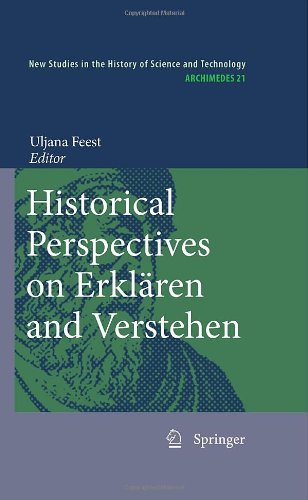

Most ebook files are in PDF format, so you can easily read them using various software such as Foxit Reader or directly on the Google Chrome browser.
Some ebook files are released by publishers in other formats such as .awz, .mobi, .epub, .fb2, etc. You may need to install specific software to read these formats on mobile/PC, such as Calibre.
Please read the tutorial at this link: https://ebookbell.com/faq
We offer FREE conversion to the popular formats you request; however, this may take some time. Therefore, right after payment, please email us, and we will try to provide the service as quickly as possible.
For some exceptional file formats or broken links (if any), please refrain from opening any disputes. Instead, email us first, and we will try to assist within a maximum of 6 hours.
EbookBell Team

0.0
0 reviewsThe conceptual pair of "Erklären" and "Verstehen" (explanation and understanding) has been an object of philosophical and methodological debates for well over a century. Discussions – to this day – are centered around the question of whether certain objects or issues, such as those dealing with humans or society, require a special approach, different from that of the physical sciences. In the course of such philosophical discussions, we frequently find references to historical predecessors, such as Dilthey’s discussion of the relationship between "Geisteswissenschaft" and "Naturwissenschaft", Windelband’s distinction between nomothetic and idiographic methods, or Weber’s conception of an interpretative sociology. However, these concepts are rarely placed in the historical contexts of their emergence. Nor have the shifting meanings of these terms been analyzed. The present volume considers a variety of intellectual, social, and material factors that contributed to the debate. Far from reducing the debates to their cultural and institutional contexts, however, the volume also offers careful systematic reconstructions of the arguments at hand, thereby enabling the reader to not only appreciate the situatedness of this exciting period of intellectual history, but also to reflect upon the current relevance of the various interpretations of the dichotomy between explanation and understanding.